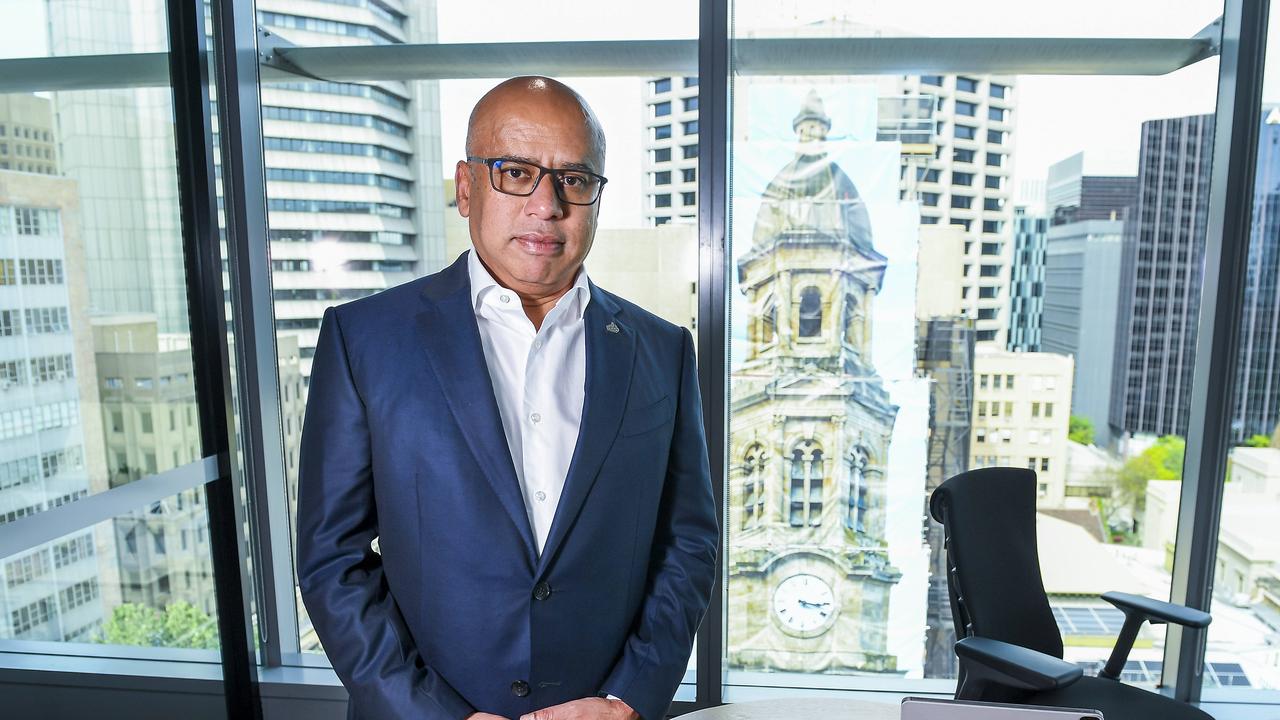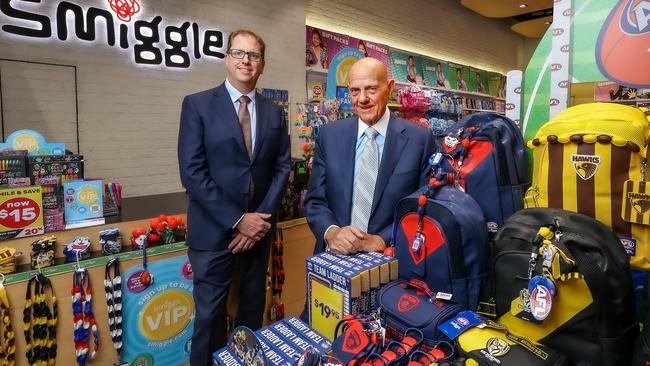
When you visit a billionaire – who also happens to be your biggest shareholder – you had better come with something more substantial than a box of doughnuts and a colourful Power Point presentation.
That was certainly on Myer chief executive John King’s mind when he made the trek across the city to visit the offices of retail mogul Solomon Lew, whose Premier Investments is Myer’s largest – and most vocal – shareholder and who up until only recently had been underwater on the investment after years of underperformance by the department store owner.
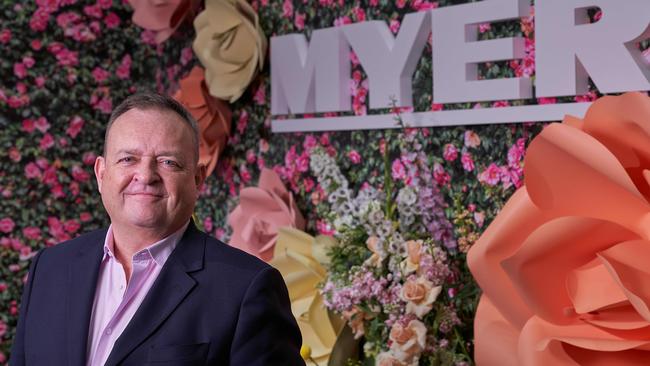
Following the release of Myer’s interim results in March, King visited Lew and came bearing the news of a more than doubling of its interim dividend to 4c a share, and matched that with another 4c-a-share special dividend.
On Premier’s stake in Myer, this equates to about $17m in dividends, although Lew will have to wait until May 11 for the funds to flow into the Premier bank account.
Lew this week told Margin Call King and his executive team came to see him after the Myer results were issued, and he described the meeting as “positive”. After six years of Lew and his agents throwing hand grenades at the Myer board (resulting in the forced departure of former Myer chairman Garry Hounsell), a “positive” meeting is akin to peace breaking out.
“Obviously we talked about the business, but it is just the start and there is a long way to go,” Lew told Margin Call.
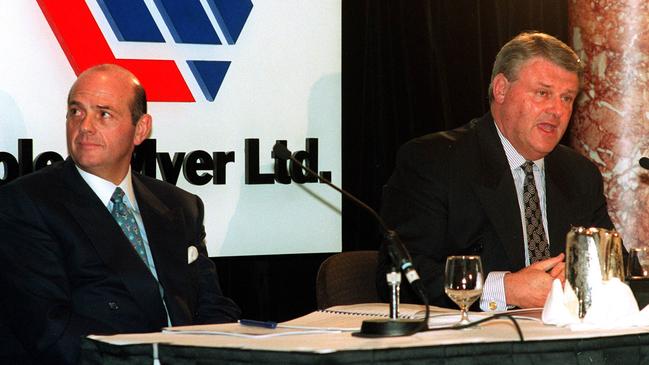
Lew then reminded Margin Call how he was Coles Myer chairman in the late 1990s, when at the time Myer had sales of $3bn and earnings of $175m that were well on their way to $200m.
“So, they (Myer) are just regaining $3bn of sales now 24 years later and only $100m EBIT, so a long way to go but obviously the brand is a solid brand and it is all about execution,” he told Margin Call.
Lew also congratulated King for shutting down the clearance stores that were championed by former Myer boss Richard Umbers and which Lew disparagingly referred to as “the Salvation Army stores”.
Unwanted souvenir
It is unknown if Lew’s boss for the retail arm of his Premier Investments business, Richard Murray, was also at the recent King meeting to discuss Myer, but given a recent bout of illness maybe he sat this one out.
Murray had headed out to a suppliers’ meeting in Bangkok, Thailand, where the Premier Retail team had four days meeting with its supplier base, and from there the former JB Hi-Fi boss flew to Bangladesh to view and inspect several fashion and apparel factories.
But Murray brought back something with him other than perhaps some duty free booze or maybe some presents for his wife and kids, as he was a “little bit unwell” when he got home.
“I think I have had my rite of passage now for the group,” a fully recovered Murray told Margin Call.
And hopefully Murray has built up immunity, too, as he prepares for his next business trip to countries that make excellent fashion and apparel but not the most trusted drinking water.
Good advice lobs in
“Loose lips sink ships” was an often-used phrase by the allies during World War II, but also a handy tip for any company board in the midst of confidential discussions about a proposed takeover bid.
This was absolutely taken to heart by United Malt Group chairman Graham Bradley as he negotiated with French malt giant Malteries Soufflet over its $1.5bn takeover bid for United Malt that was ultimately unveiled this week.
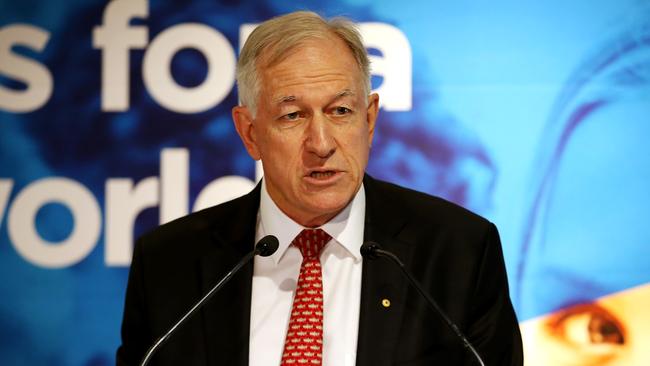
It turns out that Malteries Soufflet had made its initial takeover offer in December and, as talks raged between suitor and target, Bradley just happened to bump into his largest shareholder, Tanarra Capital’s John Wylie, at the Australian Open tennis in January.
Bradley is on the Tennis Australia board and, while having dinner at a restaurant at the tennis on the day of a semi-final, he spied former investment banker Wylie also tucking into a meal in the same room.
The two chatted for a while and perhaps Wylie, as the biggest United Malt shareholder with a stake of just over 10 per cent, gave some advice to Bradley on how to rescue United Malt from its then financial ills and bump up the share price.
Bradley must have the best poker face in town, never revealing for one moment he was in the middle of soliciting a higher takeover bid for United Malt from the French, which then actually arrived around two weeks later after his tennis chat with Wylie.
DJs deal-maker exits
It has now been one week since private equity firm Anchorage Capital has owned up-market department store David Jones, so that must mean it is one week closer to Anchorage flipping the retailer to the market via an IPO – ahem, we mean offering a wonderful investment opportunity to the general public.
Meanwhile on the other side of the world, there are changes afoot at David Jones’s former owner, Woolworths Holdings.
Reeza Isaacs, the finance director for Woolworths Holdings since 2013, has decided to step down and will leave on June 30. Isaacs and his then boss, Woolworths Holdings CEO Ian Moir, were the key drivers of the deal to buy David Jones in 2014 and were the main presenters to investors in April of that year, when the South African company announced it had purchased David Jones for $2.1bn. The pair, CEO and CFO, made all types of promises about the vast riches available from owning the Australian department store – most of which never materialised and eventually the deal cost Woolworths Holdings shareholders billions of dollars in losses and writedowns.
But Isaacs did go on two years after the David Jones acquisition to be named South Africa’s CFO of the year, so at least he has that. Moir left Woolworths Holdings in 2020 leaving behind the then David Jones wreckage and now Isaacs joins him out the door.



